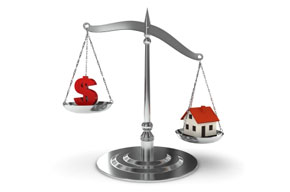How to verify your down payment when buying a home? Saving for a down payment is one of the biggest challenges facing people wanting to buy their first home and now you need to verify your down payment? Yes. To fulfill the conditions of your mortgage approval, it’s all about what you can prove (hard to believe – but some people have lied in the past – horrors!).
Documentation of the down payment is required by all lenders to protect against fraud and to prove that you are not borrowing your down payment, which changes your lending ratios and potential your mortgage approval.
DOCUMENTATION REQUIRED BY THE LENDER TO VERIFY YOUR DOWN PAYMENT
This is a government anti-money laundering requirement and protects the lender against fraud.
1. Personal Savings/Investments: Your lender needs to see a minimum of 3 months’ history of where the money for your down payment is coming from including your: savings, Tax Free Savings Account (TFSA) or investment money.
- Regularly deposit all your cash in the bank, don’t squirrel your money away at home. Lenders don’t like to hear that you’ve just deposited $10,000 cash that has been sitting under your mattress. Your bank statements will need to clearly show your name and your account number.
- Any large deposits outside of “normal” will need to be explained (i.e. tax return, bonus from work, sale of a large ticket item). If you have transferred money from once account to another you will need to show a record of the money leaving one account and arriving in the other. Lenders want to see a paper trail of where your down payment is coming from and how it got into your account.
2. Gifted Down Payment: In some expensive real estate markets like Metro Vancouver & Toronto, the bank of Mom & Dad help 20% of first time home buyers. You can use these gifted funds for your down payment if you have a signed gift letter from your family member that states the down payment is a true gift and no repayment is required.
- Gifted down payments are only acceptable from immediate family members: parents, grandparents & siblings.
- Be prepared to show the gifted funds have been deposited in your account 15 days prior to closing. The lender may want to see a transaction record. i.e. $30,000 from Bank of Mom & Dad’s account transferred to yours and a record of the $30,000 landing in your account. Bank documents will need to show the account number and names for the giver and receiver of the funds. Contact me for a sample gift letter.
3. Using your RRSP: If you’re a First Time Home Buyer, you may qualify to use up to $35,000 from your Registered Retirement Savings Plan (RRSP) for your down payment.
- Home Buyers Plan (HBP): Qualifying home buyers can withdraw up to $35,000 from their RRSPs to assist with the purchase of a home. The funds are not required to be used only for the down payment, but for other purposes to assist in the purchase of a home.
- If you buy a qualifying home together with your spouse or other individuals, each of you can withdraw up to $35,000.
- You must repay all withdrawals to your RRSP’s 15 years. Generally, you will have to repay an amount to your RRSP each year until you have repaid the entire amount you withdrew. If you do not repay the amount due for a year (i.e. $35,000/15 years = $2,333.33 per year), it will be added to your income for that year.
- Verifying your down payment from your RRSP, you will need to prove the funds show a 3-month RRSP history via your account statements which need to include your name and account number. Funds must be sitting in your account for 90 days to use them for HBP.
4. Proceeds from Selling Your Existing Home: If your down payment is coming from the proceeds of selling your currently home, then you will need to show your lender an accepted offer of Purchase and Sale (with all subjects removed) between you and the buyer of your current home.
- If you have an existing mortgage on your current home, you will need to provide an up-to-date mortgage statement.
5. Money from Outside Canada: Using funds from outside of Canada is acceptable, but you need to have the money on deposit in a Canadian financial institution at least 30 days before your closing date. Most lenders will also want to see that you have enough funds to cover Property Transfer Tax (in BC) PLUS 1.5% of the purchase price available in your account to cover your closing costs (i.e. legal, appraisal, home inspection, taxes, etc.).
- Property Transfer Tax (PTT) All buyers pay Property Transfer Tax (except first-time buyers purchasing under $500,000 and New Builds under $750,000). This is a cash expense, in addition to your down payment.
Property Transfer Tax (PTT) cannot be financed into the mortgage
Buying a home for the first time can be stressful, therefore being prepared with the right documentation for your down payment and closing costs can make the process much easier.
Mortgages are complicated, but they don’t have to be. Call me today and I can help take some of the stress away and make home buying much easier.



